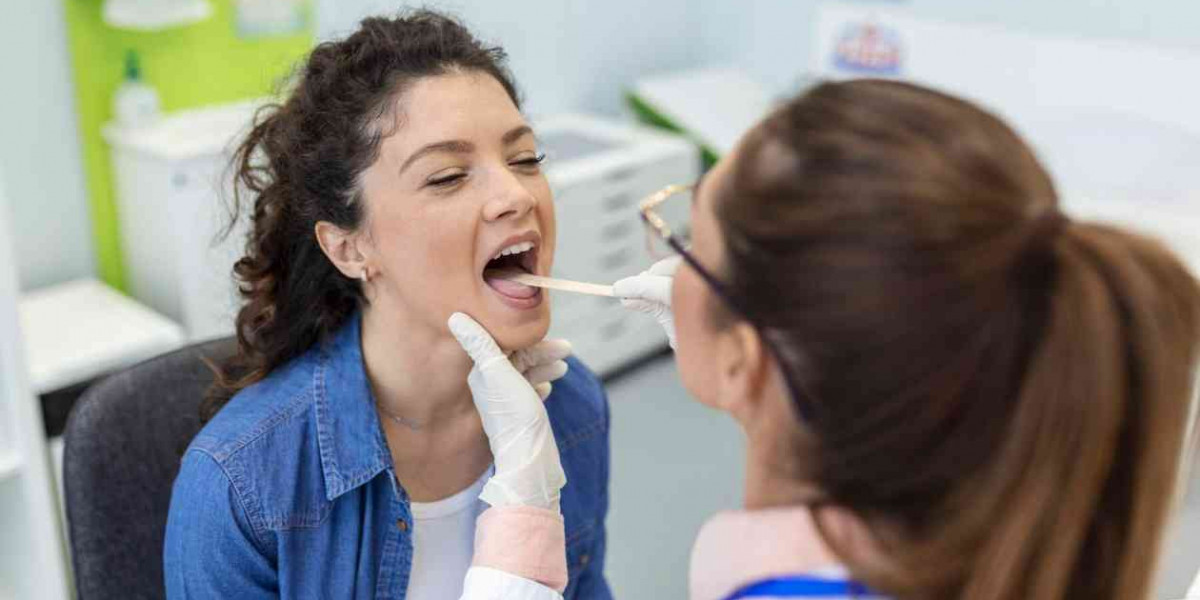Allergies can significantly impact daily life, causing discomfort, health complications, and even life-threatening reactions. To accurately diagnose allergies, healthcare professionals use various tests, one of which is the oral challenge test. This test helps determine whether a person has an allergy to a specific food or medication by carefully introducing it in a controlled medical setting.
In this article, we will explore what an oral challenge test is, why it is important, how it is conducted, and what you can expect before, during, and after the test.
What is an Oral Challenge Test?
An oral challenge test is a medical procedure used to confirm or rule out food or drug allergies. It involves consuming small, gradually increasing amounts of a suspected allergen under the supervision of a trained specialist. The test helps determine if the immune system reacts negatively to the substance, leading to an allergic reaction.
Why is the Oral Challenge Test Important?
Accurate Diagnosis – Many people rely on skin or blood tests to identify allergies, but these tests can sometimes produce false positives. The oral challenge test provides more definitive results.
Reducing Unnecessary Dietary Restrictions – Some individuals may avoid certain foods due to suspected allergies. This test can confirm whether avoidance is necessary.
Determining Allergy Severity – The test helps assess how much of a particular allergen triggers a reaction, guiding treatment and management plans.
Medication Tolerance Testing – It is often used to check whether a person who previously experienced an allergic reaction to a drug can tolerate it now.
How is an Oral Challenge Test Conducted?
The oral challenge test is performed in a medical facility with emergency resources available in case of a severe allergic reaction. Here’s how the process works:
1. Pre-Test Preparation
The doctor will review your medical history and previous allergy tests to ensure the oral challenge test is appropriate for you.
You may be asked to stop taking antihistamines or other medications that could interfere with the results.
Fasting may be required for a few hours before the test.
2. Test Procedure
The test starts with a very small dose of the suspected allergen, usually mixed into food or drink.
After each dose, you will be closely monitored for signs of an allergic reaction, such as itching, hives, swelling, difficulty breathing, or digestive issues.
If no reaction occurs, the dose is gradually increased at set intervals until a full serving is reached.
If a reaction develops, the test is stopped immediately, and appropriate treatment is administered.
3. Post-Test Monitoring
After the final dose, you will remain under observation for a period to ensure there are no delayed allergic reactions.
If no reaction occurs, the allergen may be reintroduced into your diet.
If an allergic response is detected, your doctor will provide guidance on avoidance and emergency preparedness.
Who Should Consider an Oral Challenge Test?
The oral challenge test is recommended for individuals in the following situations:
Those with a suspected food or drug allergy but uncertain test results.
Patients who have outgrown a childhood allergy and need confirmation.
Individuals with previous mild allergic reactions who need to assess their tolerance levels.
People who may require a specific medication but have concerns about an allergy.
Is the Oral Challenge Test Safe?
The oral challenge test is considered safe when conducted under medical supervision. Doctors take necessary precautions, including:
Performing the test in a controlled environment with emergency medication (such as epinephrine) on hand.
Administering doses gradually to minimize the risk of severe reactions.
Monitoring the patient throughout the test and after its completion.
While rare, severe reactions can occur, which is why it’s crucial to have the test done by an experienced allergy specialist.
What to Expect After the Test?
If No Reaction Occurs: You will likely be advised that the tested food or medication is safe for consumption.
If a Mild Reaction Occurs: Your doctor will discuss management strategies and whether reintroduction may be possible in the future.
If a Severe Reaction Occurs: The allergen must be strictly avoided, and an emergency action plan, including the use of antihistamines or epinephrine, will be provided.
Alternatives to the Oral Challenge Test
For individuals who are not good candidates for the oral challenge test, alternative diagnostic methods include:
Skin Prick Test: A small amount of the suspected allergen is placed on the skin, and a reaction is observed.
Blood Test (IgE Test): Measures the immune system’s response to allergens by detecting specific antibodies.
Elimination Diet: Removing potential allergens from the diet and gradually reintroducing them to observe reactions.
These tests, while useful, may not provide the same level of accuracy as an oral challenge test.
Tips for Preparing for an Oral Challenge Test
Follow all pre-test instructions provided by your doctor.
Bring necessary medications, such as an EpiPen, if advised.
Wear comfortable clothing and bring a book or entertainment, as the test may take several hours.
Stay calm and communicate any symptoms to the medical team immediately.
Conclusion
The oral challenge test is a valuable tool for accurately diagnosing food and drug allergies. It provides clear answers, helping individuals manage their health with confidence. If you suspect an allergy and need confirmation, consult with a healthcare provider to see if an oral challenge test is right for you.
By undergoing this test in a controlled medical setting, you can safely determine whether you need to avoid certain allergens or if they can be reintroduced into your lifestyle. Understanding your allergies through an oral challenge test can lead to better dietary choices, improved medication options, and overall enhanced quality of life.







